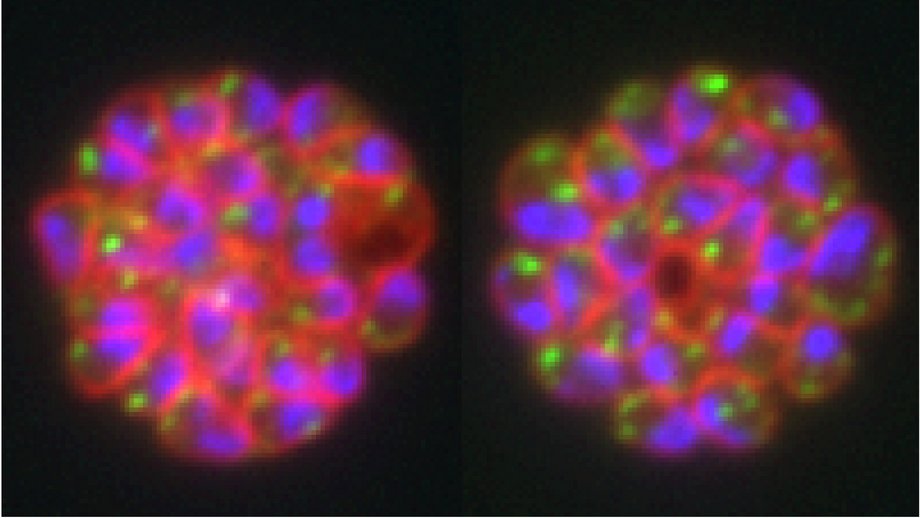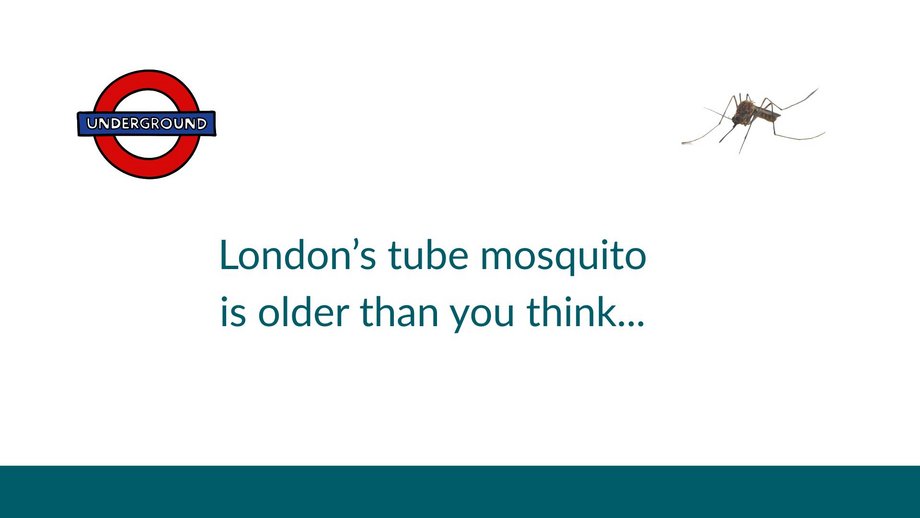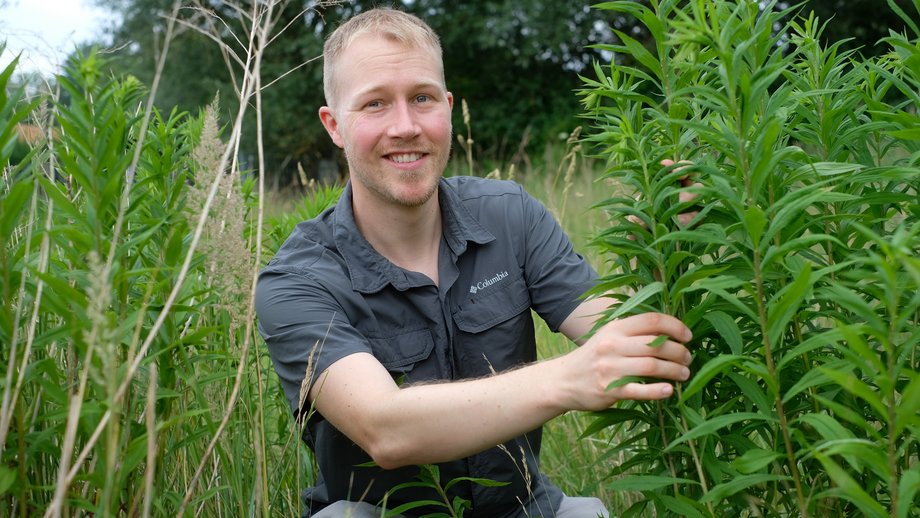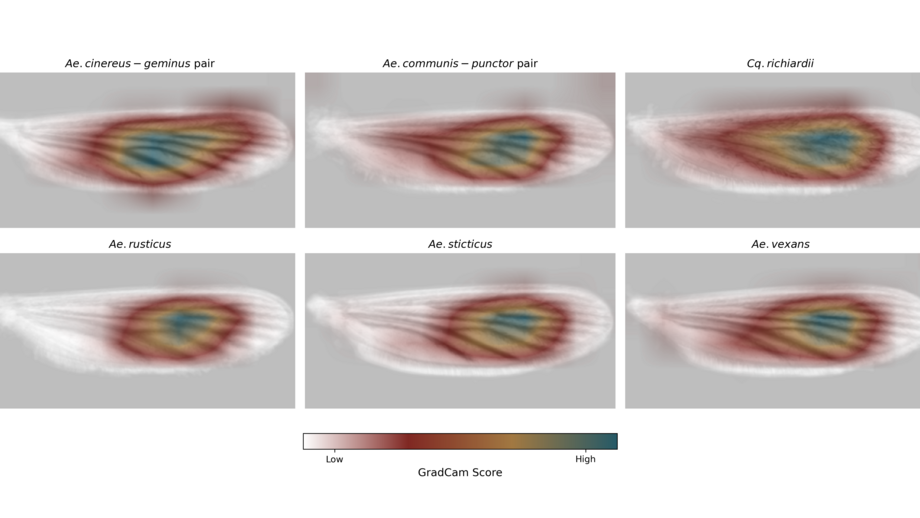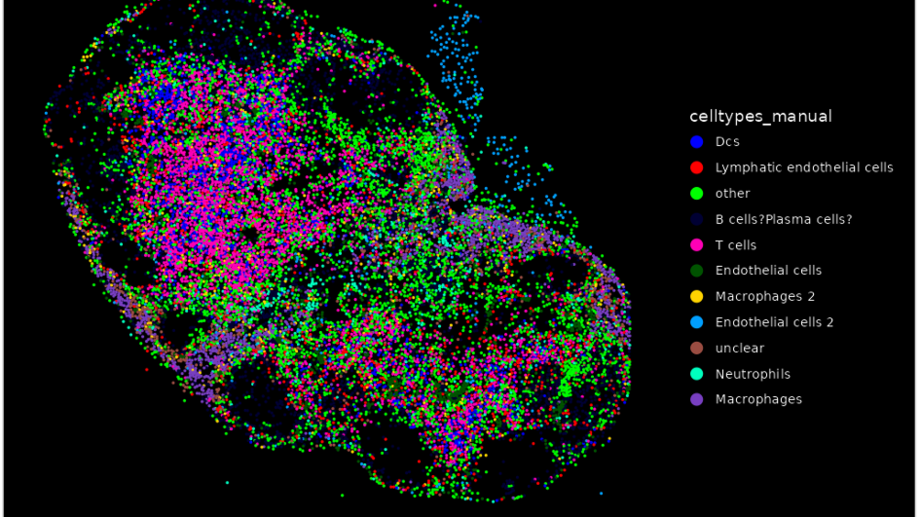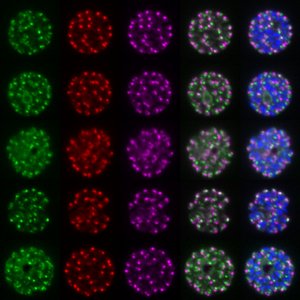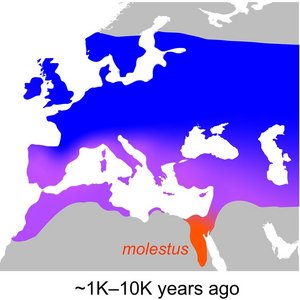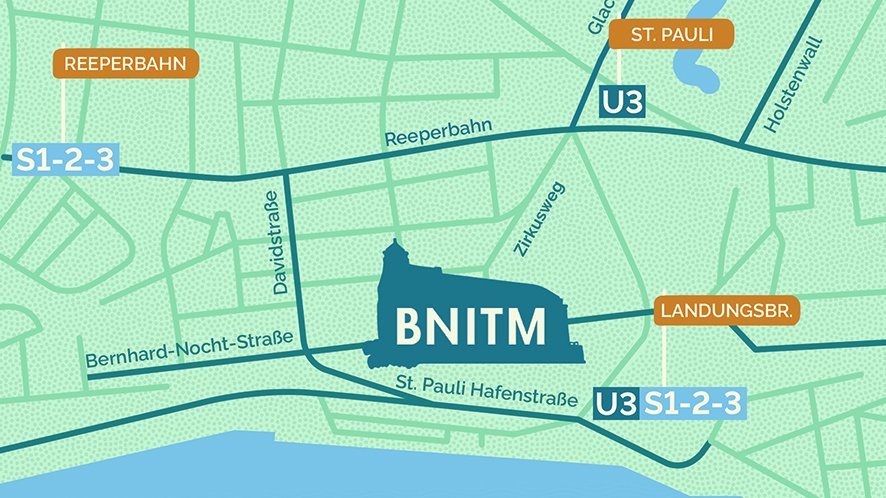Quick start for
News
Events
Auffrischkursus Aktuelle Tropenmedizin II 2025
Aktuelle Entwicklungen in der Tropenmedizin, neue interessante Arbeiten von Forschenden des BNITM, Mikroskopierkenntnisse trainieren: All…
Read moreEpidemiology & Control of Diseases in Outbreak Settings (EPICID)
This is a 3-week intensive course on the principles and methods of epidemiology and the way these inform the control of infectious diseases…
Read moreBernhard Nocht Institute for Tropical Medicine
Bernhard-Nocht-Straße 74
D-20359 Hamburg
Tel.: +49 40 285380-0
(Switchboard of the Institute)
E-Mail: bni@bnitm.de
Tel.: +49 40 285380-219
(for patients)
E-Mail: bni-ambulanz@uke.de
Downloads
- Scientific report 2023-2024 ( PDF 9 MB )
- BNITM Flyer ( PDF 39 MB )
- Organization Chart BNITM ( PDF 3 MB )
- BNITM Strategy 2025 ( PDF 22 MB )


